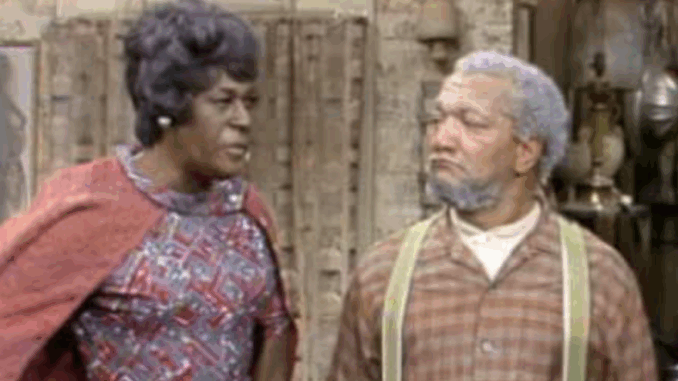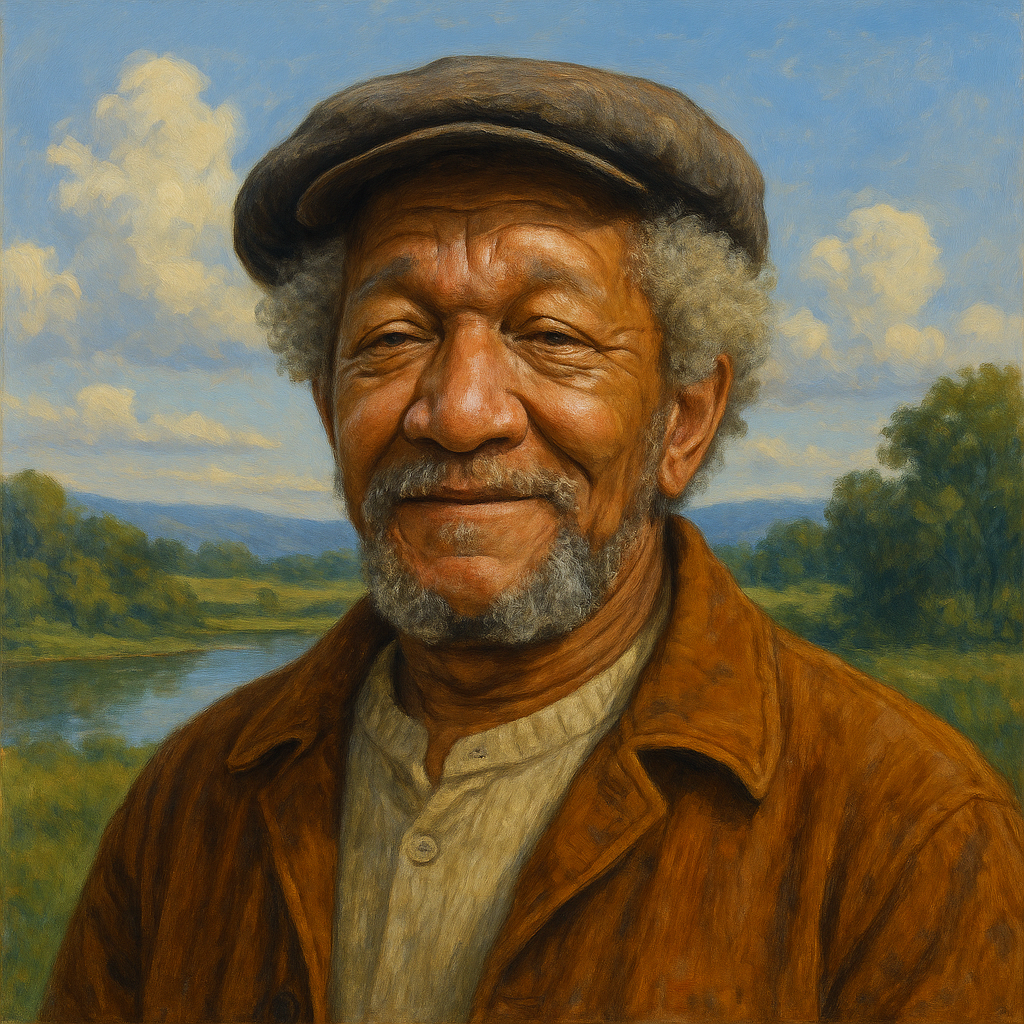
Fifty years after Sanford and Son first graced our screens, the cantankerous, conniving, yet oddly lovable junkman Fred G. Sanford continues to be a comedic titan. Portrayed with unparalleled genius by the late Redd Foxx, Fred Sanford isn’t just a character; he’s a comedic institution. His unique brand of humor, revolutionary for its time, still resonates profoundly, proving that true comedic brilliance is timeless.
The Genius of Redd Foxx: Master of “Loving Insults” and Exaggerated Expressions
Redd Foxx’s portrayal of Fred Sanford was a masterclass in comedic delivery, built on several key elements that made him unforgettable:
- The Art of the “Loving Insult”: Fred’s interactions, particularly with his son Lamont (Demond Wilson), were legendary for their verbal sparring. Fred’s insults were sharp, often bordering on outrageous, but always delivered with an underlying affection that kept them from being truly mean-spirited. He’d call Lamont a “big dummy” or threaten to send him “to the moon,” but the audience knew it was his twisted way of showing love and clinging to his only family. This “roast comedy” style, where humor came from exaggerated put-downs, was a hallmark of Foxx’s stand-up, expertly translated to the sitcom.
- Exaggerated Physicality and Facial Expressions: Few actors could convey so much with a single look or gesture. Fred’s eye-rolls, his exasperated sighs, his dramatic clutching of his chest, and his famously slow, deliberate walk were all perfectly timed comedic gold. Foxx’s expressive face could cycle through annoyance, feigned illness, cunning, and genuine surprise in a matter of seconds, drawing huge laughs without needing a single word.
- The Iconic “I’m Coming to Join You, Elizabeth!”: This catchphrase, uttered during Fred’s numerous (and always fake) heart attacks, became synonymous with the show. It was the epitome of his manipulative genius – a desperate, melodramatic plea for attention or to avoid work, always invoking his deceased wife, Elizabeth. The sheer audacity and repetition of this gag, often accompanied by a dramatic fall or a hand clutching his chest, never failed to land. It showcased Fred’s commitment to his own theatrical antics, making him both infuriating and hilarious.
- Sarcasm and World-Weary Wit: Fred was a master of the sarcastic retort, often cutting through Lamont’s earnestness with a cynical, yet hilarious, observation about life, money, or the challenges of being old. His humor was grounded in the struggles of everyday life, making his reactions relatable even in their exaggeration.
Fred Sanford: Ahead of His Time?
In many ways, Fred Sanford was a trailblazer, paving the way for sitcom characters we see today:
- The Flawed, Anti-Hero Protagonist: Before the widespread acceptance of morally ambiguous or deeply flawed protagonists in comedies, Fred Sanford was a stubbornly selfish, frequently dishonest, and often prejudiced character. Yet, audiences loved him. He showed that a lead character didn’t have to be conventionally good to be endearing and hysterically funny. This laid groundwork for characters like Homer Simpson, Larry David, or Frank Reynolds, who derive humor from their unlikable traits.
- Grounded in Reality with Exaggerated Reactions: While the situations were often sitcom-esque, the core of Sanford and Son was rooted in the everyday struggles of a working-class Black family in Los Angeles. Fred’s reactions to these struggles – from money woes to dealing with nosy neighbors – were hyperbolic but felt genuinely human in their frustration and desire for a better life. This blend of relatable reality and heightened comedic response is a formula still used in many successful sitcoms.
- Master of the Running Gag: Beyond “Elizabeth,” Sanford and Son excelled at running gags and catchphrases (“You big dummy!,” “This is the big one!”). This consistent comedic patterning built anticipation and paid off with reliable laughter, a technique now standard in episodic comedy.
Viral Moments That Keep the Laughs Coming
Even in the age of TikTok and YouTube, classic Fred Sanford moments continue to go viral, being shared and remixed by new generations. His dramatic “heart attacks,” his cutting insults to Lamont, or his exasperated interactions with Aunt Esther (“Aunt Esther, you ugly!”) are endlessly quotable and shareable. Clips highlighting Foxx’s incredible facial expressions or his perfectly timed delivery resurface constantly, proving that his performance transcends time and cultural shifts.
Fred Sanford remains a comedic legend because Redd Foxx imbued him with a universally understood mix of exasperation, cunning, and an undeniable, if gruff, charm. He tapped into the humor of human foible and the enduring dynamic of family, creating a character whose struggles and hilarious responses continue to resonate, keeping audiences in stitches 50 years later.